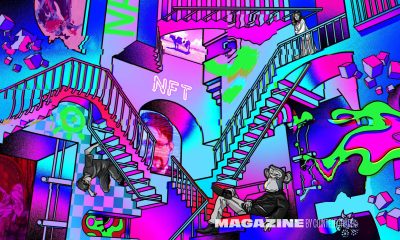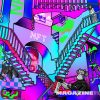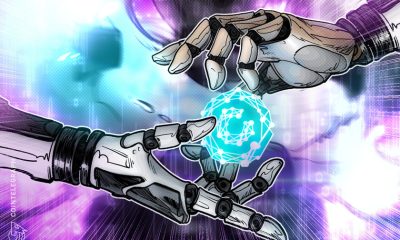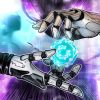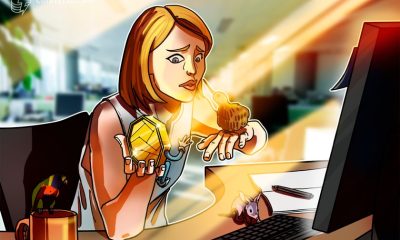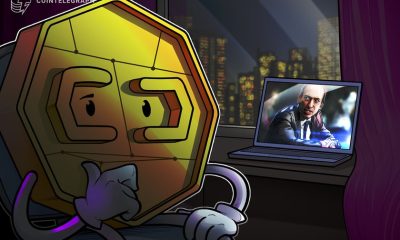Regulation
Korean watchdog begins risk assessment of crypto as Terra 2.0 passes vote

While the FSS’ standardization effort is still in its early stages, it is expected that once a legal framework for virtual assets has been established, a uniform evaluation system will be put in place.
The Korean Financial Supervisory Service (FSS) has announced that it will be standardizing the way in which virtual asset risks are assessed.
According to a local news report, this is because it is currently tough to safeguard investors due to the many ways that risk is measured for each virtual asset exchange. While the FSS’s standardization efforts are still in their infancy, when a legal framework for virtual assets has been established, it will be expected that a uniform evaluation system can be implemented for all exchanges.
On Wednesday, Stablenode’s chief operating officer Doo Wan Nam tweeted that a meeting had taken place at the Korean National Assembly building with representatives from Korean exchanges and officials regarding the Terra (LUNA) and UST issues. The exchanges, according to Doo, said the situation was undesirable and that they would do everything possible to safeguard traders on their platforms.
So there was a meeting at Korean National Assembly building with heads of Korean exchanges and politicians about the $LUNA$UST incident.
The exchanges said what’s happening with the incident is unfortunate and will work to protect traders on their platforms. pic.twitter.com/Tubv4as95X
— Doo | StableNode @Lisbon (@DooWanNam) May 25, 2022
Heraldcorp reported on Wednesday that Do Kwon, the cofounder of Terraform Labs, has contacted five South Korean exchanges to relist when LUNA 2.0 goes live. However, because LUNA is now under investigation following its failure, a number of other platforms in South Korea are staying clear, except Upbit.
CEO Kwon’s “Terra Ecosystem Restoration Plan” is to create new coins and give them out to investors who have lost money. “Let’s call the existing Terra blockchain network “Terra Classic,” and the present Luna blockchain, “Luna Classic,” and create a new Terra blockchain,” CEO Kwon tweeted on May 18.

The majority of the community, or 65.5%, supported Kwon’s plan. Just 13.2% opposed the fork vote. Around 20% of respondents abstained from voting. On Friday, based on the information in the proposal, Terra 2.0 is anticipated to go live on mainnet. After this launch, LUNA 2.0 coins will be tradeable. At the pre-determined proportion, new tokens will be airdropped to existing stakeholders of the network. However, most of the coins will go through a vesting period.
The plan to relaunch the Terra blockchain and create LUNA 2.0 tokens has been approved by on-chain voters. This will lead to the development of a new blockchain that will airdrop tokens proportionally to those who were affected by the abrupt fall of the UST algorithmic stablecoin.
6/ Token distribution details can be found in the governance proposal, but to summarize:
● Community pool: 30%
● Pre-attack $LUNA holders: 35%
● Pre-attack aUST holders: 10%
● Post-attack $LUNA holders: 10%
● Post-attack $UST holders: 15%— Terra Powered by LUNA (@terra_money) May 25, 2022
Binance, a cryptocurrency exchange, has thrown its weight behind the “Terra Rebirth.” The firm said it is collaborating with the Terra team on the recovery plan, which is aimed at givin affected users its platform “with the best possible treatment.”
The Terra community just passed a vote to ‘Rebirth Terra Network’.
We are working closely with the Terra team on the recovery plan, aiming to provide impacted users on Binance with the best possible treatment. Stay tuned for further updates.
— Binance (@binance) May 25, 2022
The controversial $40 billion meltdown of Terra has been the subject of much debate in the Korean and global crypto community. As reported by Cointelegraph, Korean exchanges handled the collapse in different ways, with the National Assembly’s Political Affairs Committee convening Terraform Labs co-founder Do Kwon for a parliamentary hearing regarding the issue.
Related: Exchanges show initial support to Terra revival by listing new LUNA token
Now, the outspoken 30-year-old South Korean who frequently calls his critics “poor” is being called on to explain this month’s $40 billion crash of a project he once called “the oldest and most widely used algorithmic stablecoin in existence.”


